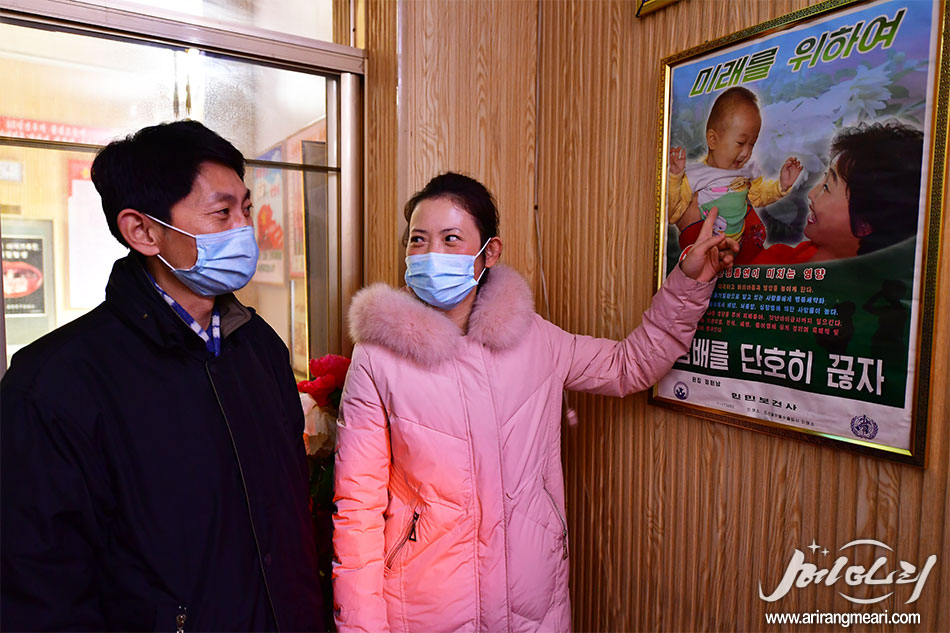 |
‘Let’s quit smoking for the future,’ an anti-smoking poster on Meari, a North Korean propaganda news website was published on Monday. (Meari-Yonhap) |
For many smokers, quitting smoking might be on top of their list of new year’s resolutions, and it appears that North Korea is also no exception.
An article titled, “Anti-smoking and our lives” was published on Meari, one of North Korea’s propaganda media websites, on Monday, promoting the nation’s anti-smoking activities, campaigns and research centers specializing in treatments to stop smoking.
Since the enactment of an anti-smoking law on Nov. 4. last year that banned smoking in public places, North Korea has been frequently publicizing their efforts through propaganda outlets, as well as putting up no-smoking signs and posters on streets and buildings.
On one poster emblazoned with the slogan, “Let’s quit smoking for the future,” it says quitting tobacco is essential for the well-being of oneself and their families.
Nicotine replacement therapies as well as dietary supplements were among some of the most widely used methods in North Korea to help smokers kick the habit, according to the article.
One of the steady sellers, developed 10 years ago by the nation’s anti-smoking research center, is a supplement dubbed “nutritious eggs.” The white tablets, shaped like marbles, are made out of natural herbs and claims to help people quit smoking while also improving the body’s immune functions.
Other aids include nicotine badges, dietary supplements and drinks made from medicinal herbs. The ingredients and processing methods were made with the country’s patented technology, the article said.
 |
People holding Juyeom tea, a dietary supplement made out of natural herbs and tree oil extractions, known to help quit smoking. (Meari-Yonhap) |
The research center also carries out body checks for smokers and offers education programs on how to quit smoking through subsequent counseling sessions, it added.
Kim Sung-kyung, a professor at the University of North Korean Studies in South Korea, expressed doubts on whether the current anti-smoking campaign was “truly effective.”
“The economic situation is worse than expected, as can be seen from the recent eighth congress of the ruling Worker’s Party, where leaders showed no clear visions for development plans,” Kim said during an interview with The Korea Herald.
Kim added that North Korea at this point will not likely be able to afford worrying about smoking related health issues, including the middle class, when the country is going through one of the worst economic meltdowns.
According to the World Health Organization’s report, in 2016, 37.3 percent of North Korean males were identified as smokers, although other sources estimate that the actual figures are higher.
Despite the anti-smoking campaign, North Korean leader Kim Jong-un, known to be a heavy smoker himself, still appears frequently on media with his cigarettes.
By Kim Hae-yeon (
hykim@heraldcorp.com)





![[Herald Interview] 'Trump will use tariffs as first line of defense for American manufacturing'](http://res.heraldm.com/phpwas/restmb_idxmake.php?idx=644&simg=/content/image/2024/11/26/20241126050017_0.jpg)

![[Health and care] Getting cancer young: Why cancer isn’t just an older person’s battle](http://res.heraldm.com/phpwas/restmb_idxmake.php?idx=644&simg=/content/image/2024/11/26/20241126050043_0.jpg)

